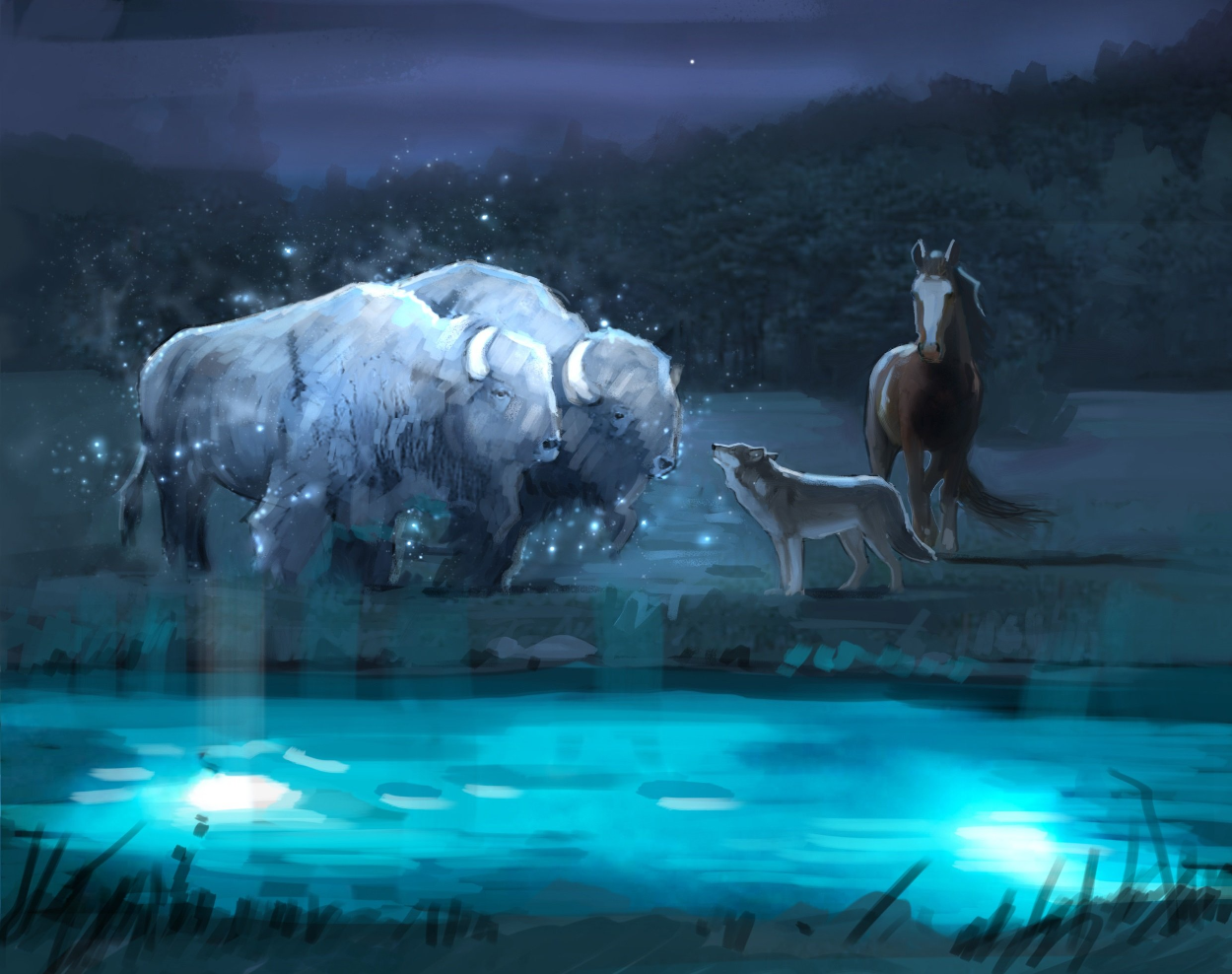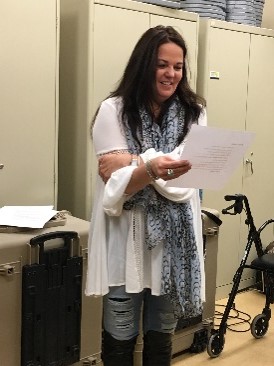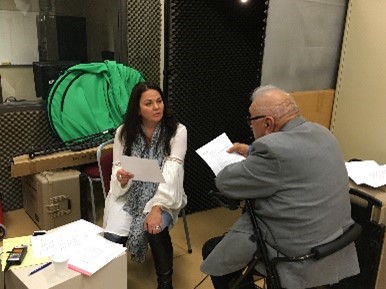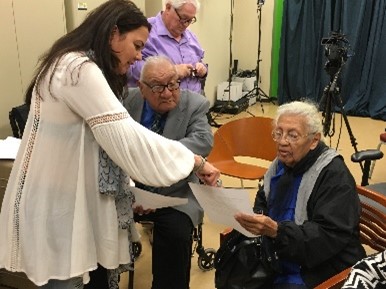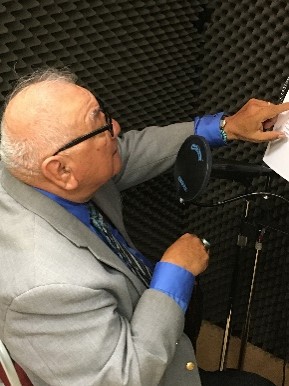Elders.
Translations.
Voices.
It was Thursday, October 22, 2015, when I arrived in Oklahoma City. After checking into the hotel, I went down to its restaurant, ordered a glass of wine — it was too early for dinner — and pulled out my notes. A recording session had been scheduled for Saturday at 10:00 AM with Oklahoma Historical Society Indian Archives at the Oklahoma History Center. The project: ShapeShifter: A Comanche Musical. Two Elders would be recording the spoken Comanche parts of White Buffalo Spirits.
The next morning, I drove ninety minutes south to Lawton. He’s already here at the Comanche Nation Complex as I pull into the parking lot. Videll Yackeschi, the man who believes in me and sees the vision of my projects. He’s been with me from the beginning assisting with translations, sharing Comanche stories, and teaching me about historical events and places. He even traveled to New York to ensure I sang our language correctly for my award-winning album Na Unu Nahai (ShapeShifter).
Standing with his cane positioned in front of him, Videll watches as I park the SUV. Exiting the vehicle, I breathe in the grass and trees — the smell takes me back in time. My mother and I spent many summers and holidays here visiting her siblings when I was young. She was born and raised here and my aunt’s place in Lawton was a second home to me. Smiling, I head Videll’s direction and we greet each other with a huge heart-felt hug. I love this man. He’s selflessly given of his time and knowledge and today’s no different, he’s scheduled a meeting with Chairman Wallace Coffey to discuss the musical.
“I hope your project captures their attention — this is important work you’re doing,” Chairman Coffey said.
After our meeting, Videll’s wife Isabelle (Navajo) and his sister June Tahpay were waiting in the parking lot of the complex. Small bags were sitting before them packed for the overnight trip. During the drive to OKC we spoke about the intended recordings and translations.
“She doesn’t read Comanche,” Videll said of his sister June. “It’s her first language, but she doesn’t know the written words. They’re too new.”
Side Note: It wasn’t until the early 2000’s that Comanche became a written language. Until this time, it had been a spoken language. My uncle Leonard Riddles, a world-renowned Comanche Artist and leading expert on Mustang horses, was one of the Elders who helped with its creation. In the past Comanche had been phonetically written out, but an actual language with letters specifically for us had not been established. Like other languages, some sounds cannot be written using the English alphabet.
Prior to the trip I attempted to write the parts in Comanche using our dictionary and what I’ve learned from Videll. Always a champion of anyone willing to learn our language, Videll emailed the corrected parts back and I printed them along with the English translations so I could follow along. But now with this new revelation that June does not read Comanche, I figured I’d go over the dialogue with her then record her when she repeats it back in Comanche.
When we arrive at the museum’s studio, we scour over the pages written in English and discuss the intended dialogue for the White Buffalo Spirits. Listening to the two siblings banter I can’t help but giggle.
“Brother, I told you, English words are backwards. Turn the words around for Comanche,” June said.
Her next words were spoken to me, “There’s no word for ‘key’ in Comanche.”
Of course not, why would there be? We were a nomadic tribe who didn’t require locked doors. Native belief: If something you cherish goes missing, it was needed elsewhere. If it finds its way back to you, it will be more valuable for its travels.
Then another reveal, “You’ve written jawbreakers. If you want it spoken in Comanche, you need to speak it in Comanche first then translate it into English.” I was humbled by June’s candidness.
In the end we were only able to get halfway through the dialogue for the White Buffalo Spirits and possibilities were discussed for our return in November.
My husband Ken, who flew in on Saturday, was our chauffeur for the latter part of the trip. On the drive back to Lawton I noticed he looked a bit nervous.
“Are you okay?” I asked in a hushed tone.
“It just dawned on me. If I crash this vehicle, I’ll take out half of your Comanche speaking elders.”
Glancing back at Videll and June I realize our elders are the most precious treasures we have on earth.


